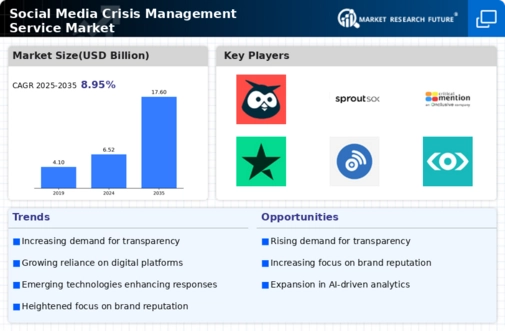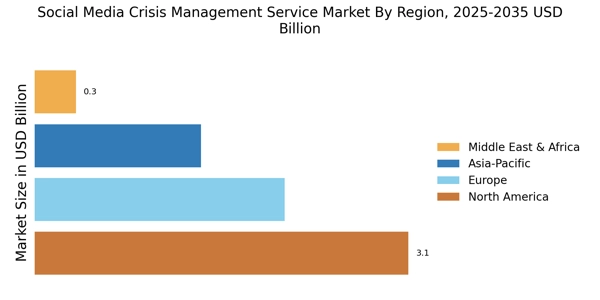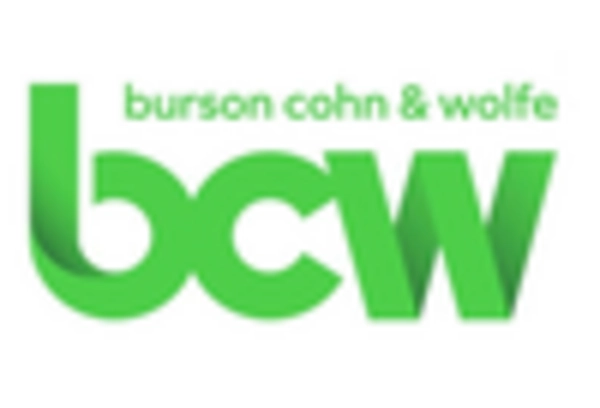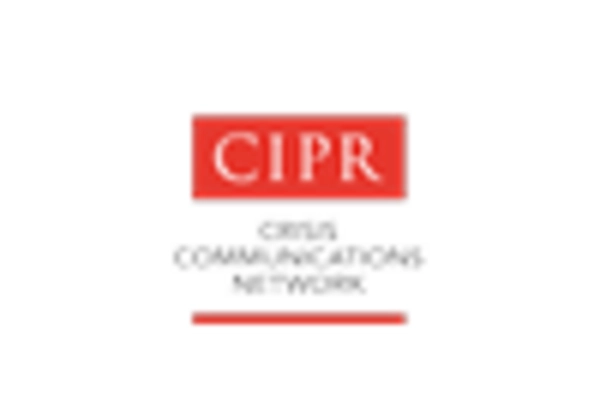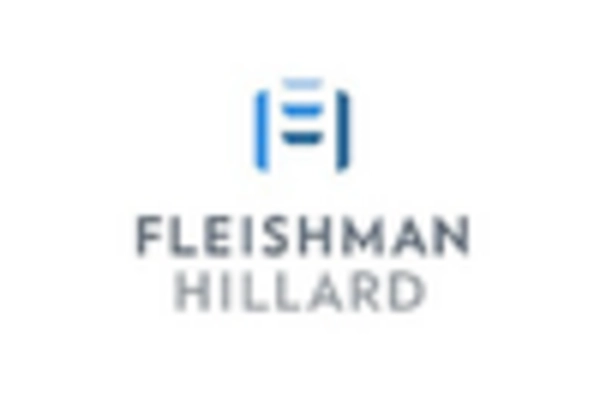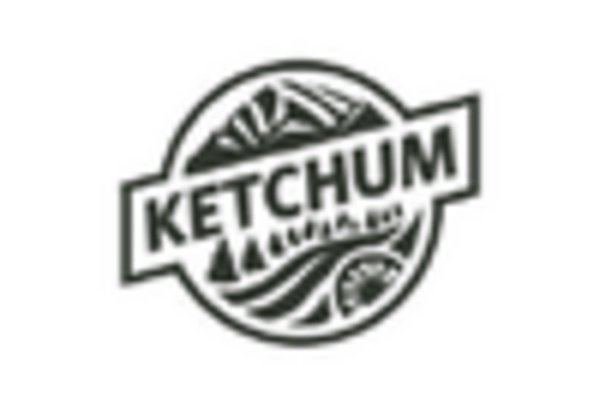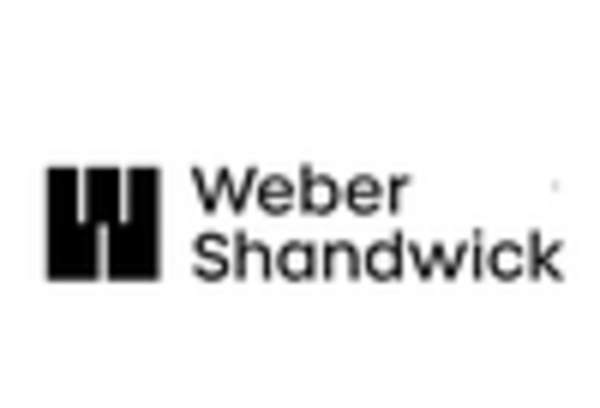Rising Social Media Usage
The proliferation of social media platforms has led to an increase in user engagement, which in turn amplifies the potential for crises to arise. As more individuals and organizations utilize these platforms for communication, the likelihood of negative incidents occurring escalates. This trend necessitates the implementation of effective crisis management strategies. The Social Media Crisis Management Service Market is witnessing a surge in demand as businesses recognize the importance of safeguarding their online reputation. According to recent data, nearly 80% of consumers are influenced by social media interactions, indicating that a single misstep can have far-reaching consequences. Consequently, organizations are increasingly investing in crisis management services to mitigate risks associated with social media usage.
Escalating Brand Reputation Concerns
In an era where brand reputation can be tarnished within moments, organizations are prioritizing their public image more than ever. The Social Media Crisis Management Service Market is responding to this heightened concern by offering tailored solutions that address potential threats to brand integrity. Companies are now more aware that a negative incident can lead to significant financial losses and a decline in customer trust. Research indicates that 70% of consumers are likely to stop purchasing from a brand after a negative experience on social media. This awareness drives organizations to seek professional crisis management services to proactively manage their online presence and protect their reputation.
Regulatory Compliance and Legal Risks
As social media platforms evolve, so do the regulations governing their use. Organizations face increasing scrutiny regarding their compliance with legal standards, particularly in relation to data privacy and consumer protection. The Social Media Crisis Management Service Market is adapting to these changes by providing services that help businesses navigate the complex landscape of regulations. Failure to comply with these regulations can result in severe penalties and reputational damage. Consequently, organizations are investing in crisis management services to ensure they are prepared for potential legal challenges that may arise from social media interactions. This trend highlights the critical role of crisis management in maintaining compliance and mitigating legal risks.
Growing Influence of Consumer Activism
Consumer activism has gained momentum in recent years, with individuals increasingly using social media to voice their opinions and mobilize support for various causes. This shift has significant implications for brands, as negative sentiments can spread rapidly and lead to public outcry. The Social Media Crisis Management Service Market is witnessing a rise in demand for services that help organizations address and manage consumer activism effectively. Companies are recognizing the need to engage with their audience transparently and authentically to mitigate backlash. As a result, many are turning to crisis management services to develop strategies that foster positive relationships with consumers and address potential crises before they escalate.
Technological Advancements in Crisis Management
The rapid advancement of technology has transformed the landscape of crisis management, particularly within the realm of social media. The Social Media Crisis Management Service Market is leveraging innovative tools and platforms to enhance crisis response capabilities. Technologies such as artificial intelligence and data analytics are being integrated into crisis management strategies, allowing organizations to monitor social media sentiment in real-time and respond swiftly to emerging issues. This technological evolution not only improves the efficiency of crisis management efforts but also enables organizations to anticipate potential crises before they occur. As businesses increasingly adopt these technologies, the demand for specialized crisis management services is expected to grow.


